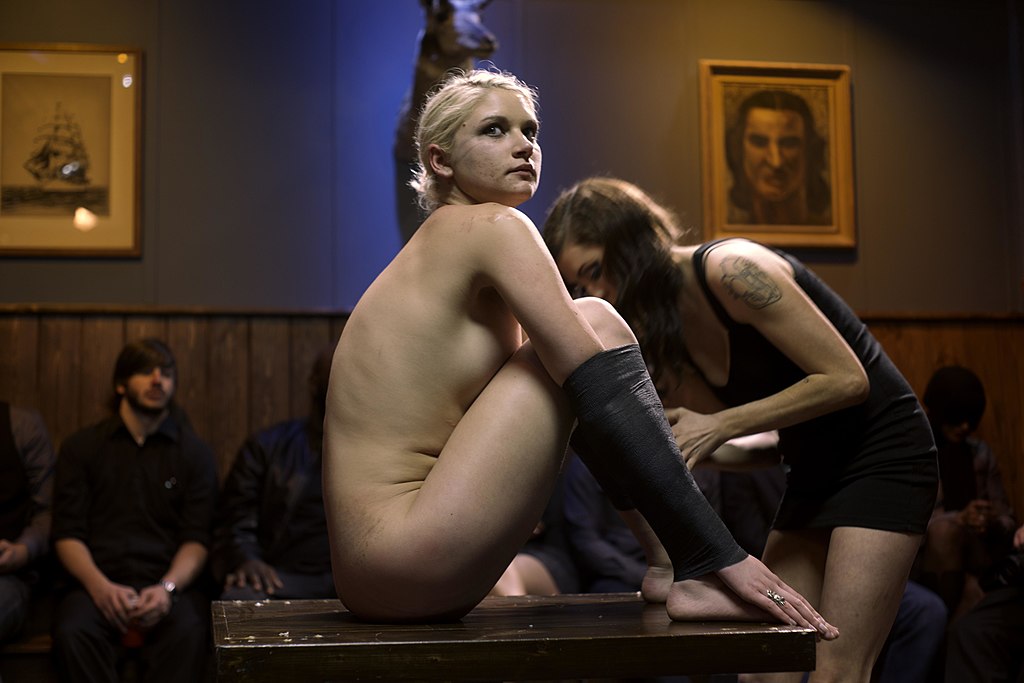PORN IS WORK – AND IT MIRRORS THE SYSTEM THAT SHAPES IT
Porn doesn’t exist outside of capitalism, patriarchy, or power. It isn’t a lawless playground that invented misogyny, nor is it a utopian space of sexual liberation. Porn is labor. And like all labor under capitalism, it’s shaped by structures of inequality, such as class, gender, race, and desire.

Image source: WikiCommons
There’s a tendency in public debate to treat porn as either a unique evil or a misunderstood art form. But this binary misses the point. Porn is an industry. And industries reflect the values of the societies they operate in. Fast fashion, food delivery, and tech startups all reward profit over people. So why would we expect the adult industry to be radically different?
Yes, most porn is full of clichés, tropes, and scripts, but so is any content factory under pressure to produce. What many critics label as the problem of porn is in fact a mirror of deeper societal norms: sexism, cis-heteronormativity, trans fetishization, racialized desire, body hierarchies, and consent-erasing fantasies didn’t originate on adult film sets. Porn amplifies them because they sell. And in market-driven industries, what sells survives.
This doesn’t mean all porn is the same. The growing presence of queer, feminist, activist, and sex worker-led porn shows that alternatives are not only possible, they already exist. These productions often prioritize consent practices, work with intimacy coordinators, make negotiation processes visible on screen, and script stories that challenge dominant power dynamics.
But let’s not fall into the trap of romanticizing “ethical porn.” The term itself can feel moralizing and inadvertently create new binaries: indie good, mainstream bad. Some indie sets run on precarious budgets that pressure performers to self-exploit. Some larger productions offer better pay, clear contracts, and professional conditions than self-acclaimed “ethical” or “feminist” studios. The line isn’t always about who makes what kind of porn, it’s about how labor is treated, how consent is practiced, and how power flows on set and off.
Critics of the porn industry are often people who wouldn’t spend a cent to support any of its variations. And that’s part of the problem. If progressive, feminist, queer, or labor-conscious porn is to thrive, two things need to happen: more people with such values need to make porn – and more people need to pay for it. Porn is a market, and markets follow demand. If the majority of the viewers willing to open their wallets are straight cis men with normative expectations, the industry will continue to serve those expectations.
The bigger picture is this: we should interrogate porn not because it’s uniquely broken, but because it’s a particularly visible example of how capitalism commodifies intimacy, desire, and the body. Performers are workers. They deserve rights, safety, agency, and fair pay. When we ignore their voices, or use them to confirm our own moral biases, we replicate the very dynamics we claim to oppose. Consumer responsibility doesn’t mean shame, it means attention in the sense of conscious consumption. What are we watching? Who made it? Under what conditions? Who’s profiting? What content do I enjoy and why? These are the same questions we should be asking about every product and service we consume — from our clothes to our porn.
And just like in other industries, real change won’t come from moral panic. It will come from labor organizing, transparent and fair regulation (and enforcement), collective action, and a shift in how we value care, consent, and creative control. Porn isn’t the problem. But it is a revealing symptom of how desire and power are produced and sold in the systems we live in.



